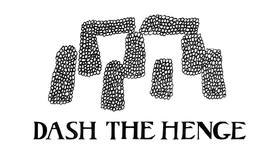
Niningashi
Heavy Way
Regular price
€29,95
Unit price
per
A long-lost Japanese acid folk gem, Niningashi’s 1974 private press debut Heavy Way shimmers with originality, deft song writing and a dream-like groove.
(🇯🇵👇)
Although he was training as a pharmacist, Kazuhisa Okubo was much more interested in prescribing musical medicine.
A coming-of-age album, Heavy Way captured a turning point in Okubo’s life, and Japanese society more widely as a nostalgia for the pastoral calm of the traditional life, met the cosmopolitan thrill of coffee, sex and cigarettes in the big city.
Intoxicated by Tokyo, driven by a passion for music and surrounded by a thriving acid folk scene, the young student filtered his experiences through a psychedelic cocktail of soulful influences from the US and Japan.
Niningashi was his first band, and Heavy Way was their only album. It was honest and raw, deep and strangely funky, in an off-beat kind of way. Across nine tracks, Okubo and the 6-piece band put their own spin on the new folk sound of Japan, combining witty lyrics with electric guitar-driven solos and crisp, understated grooves.
Melancholy and profound, opening track ‘Ameagari’ feels like a synthesis of Harvest-era Neil Young and Haruomi Hosono’s Happy End. Then there’s the whimsical washboard country sound of ‘Semai Boku No Heyade’; the moody, low-lit charm of ‘Restaurant’; and ‘Hitoribotchi’, a sensitive portrayal of childhood, steeped in memories of rainfall that will resonate with fans of Woo and Mac Demarco.
While Okubo would go on to taste success with psychedelic folk bands Neko and Kaze, the latter of which scored three #1 albums, little is known about his mysterious debut with Niningashi.
Self-released by Okubo in 1974, and featuring album artwork by his brother, it has slowly generated a cult following online, intrigued by its soft and enchanting sound. So few records were ultimately pressed that those remaining have fetched up to £1,500 online.
Featured on Time Capsule’s era-spanning collection Nippon Acid Folk, Niningashi’s Heavy Way is a deep-cut grail of a vibrant time in Japan’s musical history, where even the pharmacists were making jams.
1974年作・日本の自主制作アシッド・フォーク・激レア・アルバムが公式再発。ニール・ヤングやはっぴいえんどにも通じるサイケロック感満載の超隠れ名盤!
70年代中期にフォーク・グループ「猫」や「風」の一員として活躍し、その後はソロとして3枚のアルバムを残すが、後に音楽業界から静かに引退し、2021年に他界した大久保一久。デビュー前に自身のバンド「ににんがし」と録音した秘蔵の自主制作盤「Heavy Way」が50年の歳月を経て再び蘇る。
70年代初頭、日本のフォーク・ロック界は変革の時代を迎えていた。その以前から続いて来た欧米からの色濃い影響、モノマネや商業主義が蔓延する中、革新的な音楽家達は新しい波を求めていた。その後の日本の音楽史を書き換える事になる、錚々たるメンバーが揃った細野晴臣率いるはっぴいえんどは、メッセージ性が強かった関西フォークシーンにも触発され、日本語歌詞の音節とロック・メロディを融合する事に成功。そしてその影響は全国に波及する事になった。
その頃、薬剤師の資格を取るために広島から上京したばかりの大久保は、大学在学中から日本のフォーク音楽の源流の一つとして有名な「広島フォーク村」に参加。同団体を主宰し、日本におけるシンガー・ソングライターの草分け的存在だった同郷の吉田拓郎からもその才能を認められ、70年に制作されたににんがしによる初の7インチ・シングルでは、拓郎が初めて他人に提供したという楽曲を録音。拓郎本人もギターで参加していた。
アルバム「Heavy Way」 は大久保が大学を卒業した記念に自主制作盤として74年に録音。人生の転換期を迎えていた20代前半の大久保の心境と同時に、昔ながらの郷愁に満ちた日本の原風景と大都会での窮屈な暮らしぶりが交差する時代を描いている。自主制作とは言えど楽曲内容、演奏、録音、音響処理、全てのプロセスにプロフェッショナリズムを感じられる質の高い作品である。正直で生々しく、ディープかつ奇妙にファンキーな要素が全9曲に散りばめられたこのアルバムは、大久保とその仲間達によって慎重に紡がれた新しい日本のフォーク・ロック・サウンドとウィットに富んだ日本語歌詞が混じり、未だに時代を超えた魅力を放っている。
メランコリーかつ深遠な冒頭曲のA1:「雨上がり」は、 ハーヴェスト時代のニール・ヤングをはっぴいえんどがカバーしたようなサウンドが特に印象的。アルバム随所に聞こえる歪んだギター・ソロの乾いたトーンはこの冒頭曲後半から既に全開。大久保の繊細なヴォーカルとは対照的な音色だが、ソウルフル感溢れるプレイの中に崇高な重みを感じさせ、同曲を完全に別の次元に押し上げている。西海岸サイケ・ブルース・ロック調のA3: 「おそすぎて」では見事な日本語歌詞で昭和の香りを漂わせ、ムーディなB1:「れすとらん」での絞ったトーンはそのススだらけの古い店の雰囲気を醸し出している。このアルバムには異色なB3:「ちかんの詩」では歪んだボーカルとギターが絡み合いファンキーなリズム・セクションが楽曲を最後までドライブ。個々のミュージシャンの才能が特出している。最後を飾るのはTime Capsuleから2月に発売されたコンピレーション、Nippon Acid Folk 1970-1980にも収録されたアシッド・フォーク名曲B4:「ひとりぼっち」。子供時代の記憶の雨の日を歌う非常にセンチメンタルで湿ったこの曲は、現代のWooやMac Demarcoにも通じる趣がある。
大久保はその後、猫や風といったフォーク・グループで成功を収め、ソロとしても人気を得ていたが、このミステリアスなににんがしのデビューアルバムの事はあまり知られていない。自主制作盤としてごく少数だけ生産されたこのアルバムは50年の時を経て熟成を重ね、2022年にはオンラインで30万円近くの高値で取引されていた。
(🇯🇵👇)
Although he was training as a pharmacist, Kazuhisa Okubo was much more interested in prescribing musical medicine.
A coming-of-age album, Heavy Way captured a turning point in Okubo’s life, and Japanese society more widely as a nostalgia for the pastoral calm of the traditional life, met the cosmopolitan thrill of coffee, sex and cigarettes in the big city.
Intoxicated by Tokyo, driven by a passion for music and surrounded by a thriving acid folk scene, the young student filtered his experiences through a psychedelic cocktail of soulful influences from the US and Japan.
Niningashi was his first band, and Heavy Way was their only album. It was honest and raw, deep and strangely funky, in an off-beat kind of way. Across nine tracks, Okubo and the 6-piece band put their own spin on the new folk sound of Japan, combining witty lyrics with electric guitar-driven solos and crisp, understated grooves.
Melancholy and profound, opening track ‘Ameagari’ feels like a synthesis of Harvest-era Neil Young and Haruomi Hosono’s Happy End. Then there’s the whimsical washboard country sound of ‘Semai Boku No Heyade’; the moody, low-lit charm of ‘Restaurant’; and ‘Hitoribotchi’, a sensitive portrayal of childhood, steeped in memories of rainfall that will resonate with fans of Woo and Mac Demarco.
While Okubo would go on to taste success with psychedelic folk bands Neko and Kaze, the latter of which scored three #1 albums, little is known about his mysterious debut with Niningashi.
Self-released by Okubo in 1974, and featuring album artwork by his brother, it has slowly generated a cult following online, intrigued by its soft and enchanting sound. So few records were ultimately pressed that those remaining have fetched up to £1,500 online.
Featured on Time Capsule’s era-spanning collection Nippon Acid Folk, Niningashi’s Heavy Way is a deep-cut grail of a vibrant time in Japan’s musical history, where even the pharmacists were making jams.
1974年作・日本の自主制作アシッド・フォーク・激レア・アルバムが公式再発。ニール・ヤングやはっぴいえんどにも通じるサイケロック感満載の超隠れ名盤!
70年代中期にフォーク・グループ「猫」や「風」の一員として活躍し、その後はソロとして3枚のアルバムを残すが、後に音楽業界から静かに引退し、2021年に他界した大久保一久。デビュー前に自身のバンド「ににんがし」と録音した秘蔵の自主制作盤「Heavy Way」が50年の歳月を経て再び蘇る。
70年代初頭、日本のフォーク・ロック界は変革の時代を迎えていた。その以前から続いて来た欧米からの色濃い影響、モノマネや商業主義が蔓延する中、革新的な音楽家達は新しい波を求めていた。その後の日本の音楽史を書き換える事になる、錚々たるメンバーが揃った細野晴臣率いるはっぴいえんどは、メッセージ性が強かった関西フォークシーンにも触発され、日本語歌詞の音節とロック・メロディを融合する事に成功。そしてその影響は全国に波及する事になった。
その頃、薬剤師の資格を取るために広島から上京したばかりの大久保は、大学在学中から日本のフォーク音楽の源流の一つとして有名な「広島フォーク村」に参加。同団体を主宰し、日本におけるシンガー・ソングライターの草分け的存在だった同郷の吉田拓郎からもその才能を認められ、70年に制作されたににんがしによる初の7インチ・シングルでは、拓郎が初めて他人に提供したという楽曲を録音。拓郎本人もギターで参加していた。
アルバム「Heavy Way」 は大久保が大学を卒業した記念に自主制作盤として74年に録音。人生の転換期を迎えていた20代前半の大久保の心境と同時に、昔ながらの郷愁に満ちた日本の原風景と大都会での窮屈な暮らしぶりが交差する時代を描いている。自主制作とは言えど楽曲内容、演奏、録音、音響処理、全てのプロセスにプロフェッショナリズムを感じられる質の高い作品である。正直で生々しく、ディープかつ奇妙にファンキーな要素が全9曲に散りばめられたこのアルバムは、大久保とその仲間達によって慎重に紡がれた新しい日本のフォーク・ロック・サウンドとウィットに富んだ日本語歌詞が混じり、未だに時代を超えた魅力を放っている。
メランコリーかつ深遠な冒頭曲のA1:「雨上がり」は、 ハーヴェスト時代のニール・ヤングをはっぴいえんどがカバーしたようなサウンドが特に印象的。アルバム随所に聞こえる歪んだギター・ソロの乾いたトーンはこの冒頭曲後半から既に全開。大久保の繊細なヴォーカルとは対照的な音色だが、ソウルフル感溢れるプレイの中に崇高な重みを感じさせ、同曲を完全に別の次元に押し上げている。西海岸サイケ・ブルース・ロック調のA3: 「おそすぎて」では見事な日本語歌詞で昭和の香りを漂わせ、ムーディなB1:「れすとらん」での絞ったトーンはそのススだらけの古い店の雰囲気を醸し出している。このアルバムには異色なB3:「ちかんの詩」では歪んだボーカルとギターが絡み合いファンキーなリズム・セクションが楽曲を最後までドライブ。個々のミュージシャンの才能が特出している。最後を飾るのはTime Capsuleから2月に発売されたコンピレーション、Nippon Acid Folk 1970-1980にも収録されたアシッド・フォーク名曲B4:「ひとりぼっち」。子供時代の記憶の雨の日を歌う非常にセンチメンタルで湿ったこの曲は、現代のWooやMac Demarcoにも通じる趣がある。
大久保はその後、猫や風といったフォーク・グループで成功を収め、ソロとしても人気を得ていたが、このミステリアスなににんがしのデビューアルバムの事はあまり知られていない。自主制作盤としてごく少数だけ生産されたこのアルバムは50年の時を経て熟成を重ね、2022年にはオンラインで30万円近くの高値で取引されていた。

